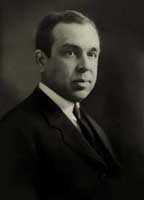
 The historic creeds and confessions had several functions in their own day. Their purpose was not entirely negative, but the negative dimension was, and still is, very important. They are confessions of faith to the world of what the church believes. By clarifying the truth they must, by definition, if not also by specific intention, deny the validity of other confessions. And it is no use to the world, or to the churches, to have a form of words that can be interpreted in mutually exclusive ways by different parties.
The historic creeds and confessions had several functions in their own day. Their purpose was not entirely negative, but the negative dimension was, and still is, very important. They are confessions of faith to the world of what the church believes. By clarifying the truth they must, by definition, if not also by specific intention, deny the validity of other confessions. And it is no use to the world, or to the churches, to have a form of words that can be interpreted in mutually exclusive ways by different parties.We are not at liberty to choose whether we will have a confession of faith or not. Every church and Christian organisation has one, whether it is written or oral, whether it is of daily use or, in document form, suffers from long term neglect; whether it is a flag of convenience or a true statement of conviction.
The church is always confessing what it believes, what it holds dear, what is most valuable for this generation, what it will teach its children, and what it wants the world to believe. It cannot do so as a faithful confessing church unless it also excludes things that ought not to be believed, taught or confessed.
"The historic creeds were exclusive of error; they were intended to exclude error; they were intended to set forth the biblical teaching in sharp contrast with what was opposed to the biblical teaching, in order that the purity of the church might be preserved. These modern statements, on the contrary, are inclusive of error. They are designed to make room for just as many people and for just as many types of thought as possible."
J. Gresham Machen

No comments:
Post a Comment